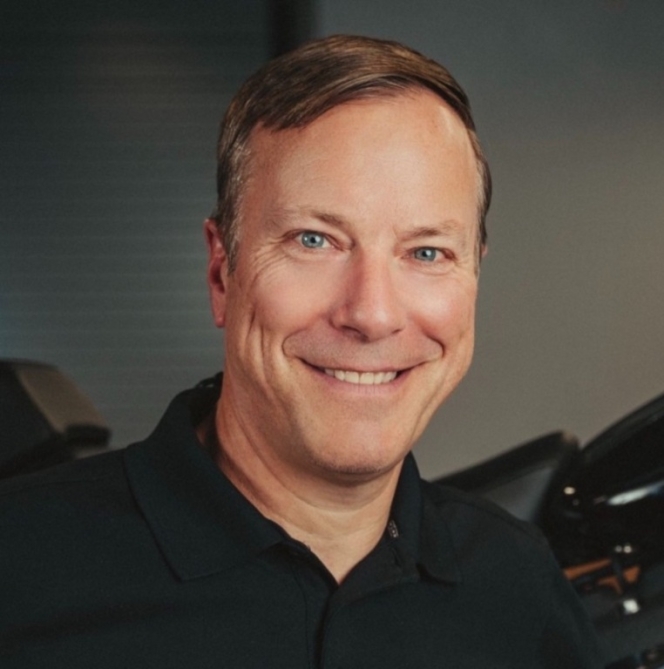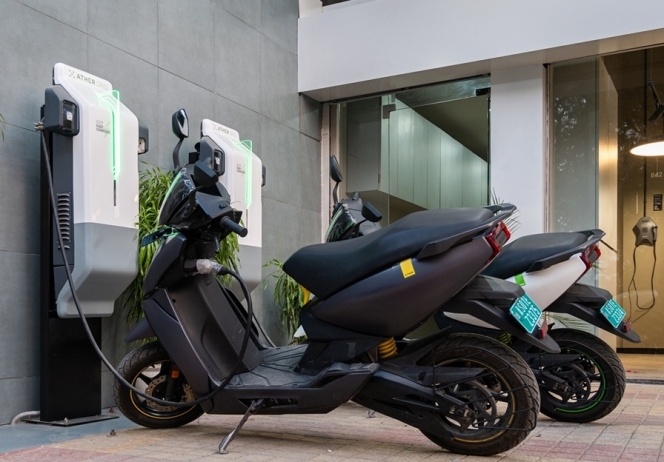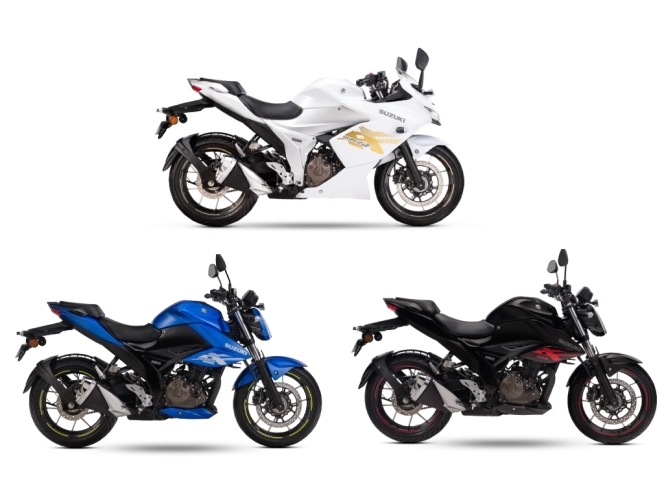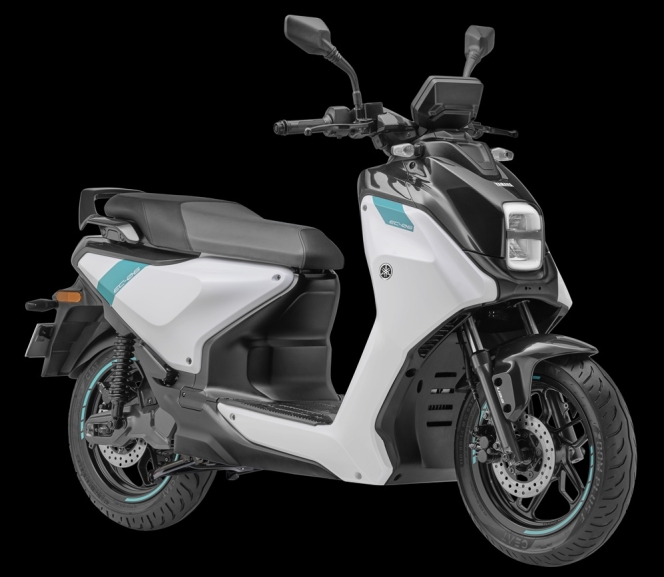Yulu Bikes, The Future Of Shared EV Mobility in India?
- By Aditya Gowda
- June 22, 2021

Q) What was the inspiration behind Yulu?
Amit Gupta: Ideally, Yulu was my brain-child, but Yulu holds the position of being the largest e-mobility player in India today only because of our dream team, which came along with the other co-founders who have their own expertise in technology, operations, and EV ecosystem to enhance the product offering further, so that the commuters have a great experience. The impact of air pollution and traffic congestion on the environment was a worrying trend that we commonly wanted to address through technology.
Our vision is to decongest urban traffic by providing a highly scalable, affordable, efficient, and clean mode for the first and last mile connectivity and short distance commute. The future of mobility is safe, smart, shared, sustainable, and small and electric vehicles have a big role in this transition. Hence, the idea of smaller and efficient clean energy vehicles was an obvious route that we chose.
Q) How was the Miracle conceived?
Amit Gupta: After launching the Yulu Move, we found that the average distance travelled by bicycle was two km and Yulu bicycles were mostly not used by people who had to ride between three and five km. There were several explanations for this: it was too hot, the trip was too long, they didn’t want to cycle so much, or they wanted a quicker way of commuting.
That’s when the team began thinking about a product on electric mobility. Yulu launched its electric scooter – Yulu Miracle – in Bangalore in 2019. Yulu’s vision is to provide shared, smart and sustainable urban e-mobility solution which is seamlessly integrated with public transport with an objective to drastically reduce congestion and pollution and improve economic productivity. Our mobility solutions are special; they are created for shared economy and solo-ridership.
Q) How does Yulu Business Model caters to the issues in Indian EV Ecosystem faces?
Amit Gupta:
Solved for Battery Charging Infrastructure:
Yulu has solved the ‘chicken and egg’ problem faced by the electric vehicle ecosystem in India, where the lack of charging infrastructure influences the advent of EVs, and vice versa. The company has created a unique battery-swapping network by placing its proprietary IoT-enabled charging box (Yulu Max) at hundreds of mom-n-pop stores across its operational areas. Yulu’s on-ground Ops team is able to locate the nearest Yulu Max which has charged batteries using a dedicated app for the Ops team. The same app shows the set of vehicles that have a battery-charge level below a defined threshold along with their real-time location. This method is low cost and highly scalable.
Solved for Parking Infrastructure:
Unlike China, Indian cities don’t have the infrastructure for parking of shared mobility vehicles. Yulu has solved this problem by working with cities, corporates and citizens who have given access to prime real estate to create Yulu Zones. Most of these spots have been given to Yulu in kind to help build sustainable mobility for the cities in a collaborative manner. Yulu has been able to replicate this model in every city it operates.
Solved for the Safety of the Assets:
Yulu Miracle has a theft rate of less than one percent, which is significantly lower than global ride-sharing platforms. This is attributable to Yulu’s operational model of drop off at designated Yulu Zones and a human network of local informers and ‘well-wishers’ who tip off its Ops team in case of any potential abuse or theft incident. Further, as the Yulu Miracle was designed specifically for shared mobility, it has no ‘standard’ parts which could be used in other bikes in the market, so there is economic value for someone stealing them. Additionally, Yulu has deployed a team of ‘bike-marshals’ who ensure strong consequence-management actions when they catch someone doing wrong with its fleet.
Solved for High Durability:
Yulu Miracle has been built keeping in mind the convenience of users on Indian roads, ease of maintenance for the on-ground Ops team and durability to be used in a shared mobility model. The minimal use of plastic parts and regular proactive maintenance activities have ensured that the Miracles are in good working condition at all times. The first batch of Miracles deployed in Bangalore, which have been on the road for over seven months, has shown no sign of a reduction in asset quality.
Q) Can we expect any newer models in your range?
Amit Gupta: We have two models deployed on road, while we are working on a few hybrid and high-speed models. (MT)
Carolwood LP Completes Acquisition Of Indian Motorcycle Company From Polaris, Mike Kenney Takes Over As CEO
- By MT Bureau
- February 03, 2026

Carolwood LP has officially closed its agreement with Polaris to acquire the iconic Indian Motorcycle Company, which will now become an independent business.
The transition coincides with the 125th anniversary of the company, which also sees Mike Kennedy, a veteran of the motorcycle industry, take over as the Chief Executive Officer of the stand-alone entity.
The acquisition agreement includes the transition of approximately 900 employees to the new Indian Motorcycle Company. Manufacturing operations will remain at existing facilities in Spirit Lake, Iowa and Monticello, Minnesota.
Industrial design, technology and product development will continue at research and development centres in Burgdorf, Switzerland and Wyoming, Minnesota. Sales, service, and support for the dealer network and customers are expected to continue without interruption.
The company’s strategy involves concentrated investment in motorcycles, technologies, and craftsmanship. The executive emphasised a commitment to the brand's American manufacturing identity and its dealer partnerships.
Mike Kennedy, said, “It’s an incredible honour to take the helm of Indian Motorcycle as it celebrates its 125th Anniversary, empowered by a sense of gratitude and opportunity, and the support and ambition of a well-resourced, highly motivated ownership team. 2026 will be a special year to honour our history, but more importantly, to drive the brand into the future with a renewed level of commitment, focus and clarity that can only be found as a stand-alone company.”
The new leadership intends to focus on transparency and collaboration with its global dealer network, incorporating feedback into operations, marketing, and product development.
“We will achieve our vision through a deeper level of differentiation, leaning in on what makes our brand unique, and with products that possess a style, craftsmanship and performance quality that is uniquely justified by our historic legacy and spirit of innovation. Dealers are our most important partners, and we will judge our business based on the success of our dealers. We intend to be extremely collaborative with our dealers, actively listening to their feedback and incorporating it into our planning and decision-making, not only in terms of dealer operations, but also product development and marketing. America’s first motorcycle company will put America first. Our brand and business will be grounded in our American identity and more importantly, American manufacturing. ‘Built in America’ is not a slogan. It’s a competitive advantage, and we intend to use it,” added Kennedy.
Ather Energy Reports INR 9.95 Billion Revenue For Q3 FY2026
- By MT Bureau
- February 02, 2026

Bengaluru-based electric vehicle maker Ather Energy has posted its highest quarterly revenue to date, reaching INR 9.95 billion for Q3 FY2026, which marks a 53 percent YoY growth.
The company attributed the performance to sales volume growth as well as a rise in non-vehicle revenue. During the period, the company sold 67,851 units, a 50 percent increase YoY. Consequently, Ather’s national market share has expanded to 18.8 percent.
Ather Energy reported a narrowing of its EBITDA loss to INR 299 million, with the EBITDA margin improving by 1,600 basis points to (-3 percent). This progress is attributed to cost management and operating leverage.
Key Financial Data:
- Adjusted Gross Margin (AGM): INR 2.51 billion, up 111 percent YoY.
- AGM (Excluding Incentives): 23 percent, an increase of 1,100 bps YoY.
- Non-Vehicle Revenue: Contributed 14 percent to total income, led by software subscriptions, charging and services.
- Quarterly Loss Reduction: Narrowed by 45 percent compared to Q2 FY2026.
Tarun Mehta, Executive Director & CEO, Ather Energy, said, “Q3 has been a strong quarter for us. Robust festive demand, healthy volume growth, and improving market share together drove our best quarterly revenue and EBITDA so far. Over the past few quarters, we have stayed very focused on getting the fundamentals right by improving unit economics, margins, and operating leverage, and that effort is now clearly showing in the improvement in EBITDA. What is particularly encouraging is the strength of our ecosystem. AtherStack attach rates remain very high, and customer engagement is deepening even as our sales scale. All of this gives us confidence that the business is structurally prepared for sustainable, long-term growth.”
Suzuki Motorcycle India Reports 125,786 Unit Sales In January 2026
- By MT Bureau
- February 02, 2026

Suzuki Motorcycle India (SMIPL), the two-wheeler subsidiary of Suzuki Motor Corporation, Japan has reported wholesales of 125,786 units in January 2026, which marks a 15 percent YoY growth.
In the domestic market, the sales increased by 14 percent to 100,296 units, as against 87,834 units last year, while exports came at 25,490 units, up 21 percent YoY.
Deepak Mutreja, Vice-President – Sales & Marketing, Suzuki Motorcycle India, said, “The sales results for January indicate growing demand in both domestic and international markets. This momentum is supported by our ongoing focus on continuous customer engagement, after‑sales service enhancement, and network expansion. We will continue to invest in these areas to ensure that customers receive a seamless and reliable ownership experience throughout the year.”
Furthermore, the company reported INR 895.6 million revenue through spare parts sales, marking a 20 percent YoY growth.
Yamaha EC-06 E-Scooter Launched At INR 167,600
- By MT Bureau
- February 02, 2026

India Yamaha Motor (IYM), a leading two-wheeler manufacturer, has announced the price of its first electric scooter – the EC-06 – at INR 167,600 (ex-showroom Delhi). The e-scooter based on the River Indie will initially be sold in select cities through the company's Blue Square showrooms in a Bluish White colour.
The EC-06 features a 4kWh fixed battery paired with an Interior Permanent Magnet Synchronous Motor (IPMSM). It offers a certified claimed range of 169km on a single charge. It has a claimed top speed of 79 kmph, 6.7 kW of peak power, 26 Nm of torque and can be charged in 8 hours using a standard plug. It comes with 3 years or 30,000 km warranty for the battery.
The vehicle is built with IP67-certified protection for the motor and battery, while other electronics carry an IP65 rating for water and dust resistance.
The scooter includes three riding modes – Eco, Standard and Power – alongside a Reverse Mode. The chassis uses telescopic front forks with hydraulic dampers and a rear coil spring suspension. Braking is handled by 200mm discs at both ends, supported by a Combi Brake System (CBS).
For storage and technology, the EC-06 provides 24.5 litres of under-seat space and a colour LCD display. It integrates with the ‘Yamaha Motor Connect R’ app for real-time data access.
Hajime Aota, Chairman, Yamaha Motor India Group, said, “The EC-06 marks an important step in Yamaha’s journey toward sustainable urban mobility. As India accelerates its transition toward a carbon-neutral future under the government’s visionary leadership, Yamaha is proud to support this national agenda through high-quality electric innovation. Designed for everyday commuting, it balances efficiency with performance, offering an impressive range and intuitive features. As a first-of-its-kind model from Yamaha, it demonstrates how sustainability and riding excitement can coexist – true to our brand philosophy and our responsibility towards the future of India’s green economy.”







Comments (0)
ADD COMMENT